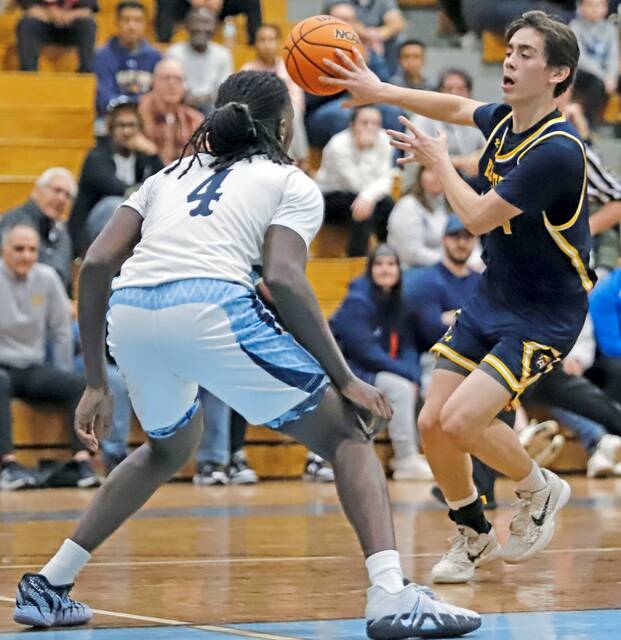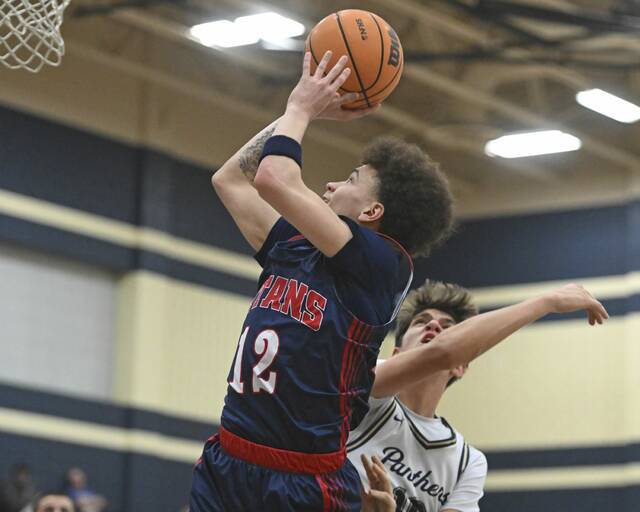A faculty-elected oversight body recommends that Duquesne University President Ken Gormley rehire Gary Shank, the education professor fired for using a racial slur during a virtual lecture on race and language in September.
“While Dr. Shank’s use of the N-word was misguided, it was not malicious,” concludes a report by the University Grievance Committee for Faculty, which reviewed Shank’s case, including by conducting interviews and holding a hearing. “Therefore, while sanction of Dr. Shank’s behavior is warranted, it does not reach the level requiring dismissal.”
Per the university’s handbook, Gormley has 15 business days from the Jan. 14 report to decide whether to accept or reject the recommendation to reinstate Shank — or until the end of next week, Friday, Feb. 5.
“The president has received the report and will review its recommendations in their entirety before issuing a decision,” Gabriel Welsch, the university’s vice president of marketing and communications, said by email.
Shank, a tenured faculty member in Duquesne’s School of Education since 1997, was fired Oct. 7 for what Gormley and other top university officials deemed “serious misconduct.” Shank’s termination came less than a month after the university suspended him for using the slur multiple times during a Sept. 9 educational psychology class held online. Shank said he was using the word and encouraging students to use it only in “a pedagogical sense.”
His firing drew criticism from civil liberties groups — including the American Association of University Professors and Philadelphia-based Foundation for Individual Rights in Education — who argued that Duquesne University was violating its own rules as well as national standards regarding academic freedom.
The grievance committee pointed out that the incident marks the first time Shank has been formally disciplined in decades of teaching.
In response to the report, Shank said the committee “correctly states that in my 23 years as a tenured professor at Duquesne University I was never formally disciplined before this incident” and that he should not be dismissed.
“However, I am concerned that the committee recommends that I be sanctioned and also takes a rather restrictive view of the meaning of academic freedom on Duquesne University’s campus,” Shank said in a statement.
Report: Shank showed ‘serious misconduct’
Despite asserting Shank should not have been fired, the grievance committee cited several criticisms regarding Shank’s actions as a professor.
“Dr. Shank exercised extremely poor judgment in his decision to use the N-word rather than an abstraction as an example of progress made in race relations,” the report says. It noted Shank chose to use “the most offensive insult used against African Americans in contemporary American culture” and, rather than “using the euphemism (‘the N-word’), he used the word itself.”
The report further found Shank did not plan enough nor prepare students before using “a highly offensive and inflammatory word without abstraction” and exhibited “especially callous indifference to the sensitivities of the students of color in the class.”
Shank, who is white, gave participants of the online class in question “permission” to use the full N-word “in a pedagogical sense,” though no students did so during the two minutes of video posted to social media. The professor then repeatedly said the word while explaining he was demonstrating a point about how when he was younger, it was “a very commonly used word.” He then proceeded to provide three examples of how it was used to describe derogatory stereotypes about Black people when he was a younger man, repeating the word in each example.
“During a 50-minute lecture on cultural diversity, Dr. Shank spent six and a half minutes discussing how there had been progress in the language of race relations between whites and African Americans over his lifetime,” the grievance committee’s report states.
Why professor chose to use full N-word
Shank told the committee that he “felt the abstraction lessened the student’s appreciation for the full impact of the word and use of the word itself would promote learning on a visceral level rather than mere cognitive learning,” according to the report.
But Shank did not share his reasoning with students prior to using the word, “nor did he explain why he wanted to use the N-word as an example of cultural progress for racial reconciliation rather than some other less offensive example,” the report says.
“I taught my class in a manner that I believed at the time to be totally appropriate,” Shank said in his response to the report. “I used the word because I was teaching about the evolution and change of the use of that word in our culture.”
Shank said the criticism against him “essentially boils down to their disapproval with my teaching style” and their opinion that what he did “was not to their liking.”
“The nature and use of racial epithets were a highly appropriate topic for this particular lecture, and there is substantial academic research on this topic,” Shank said. “I was careful to prepare my students for my usage, and I gave ample time to debrief.”
Shank further said that to fire him, officials chose to “cherry-pick reviews of disgruntled former students made over the decades of my teaching at Duquesne.”
Should his firing stand, Shank argued that the university should immediately explicitly prohibit the use of the N-word on campus and acknowledge that its standards differ from national ones regarding academic freedom.
Report: University did not violate professor’s academic freedom
The report found the university did not violate Shank’s academic freedom by suspending or firing him, nor did it fail to provide due process. It said that prior to firing him, interim School of Education Dean Gretchen Generett tried to meet with Shank to discuss the incident and give him a chance to explain what happened. Shank refused to do so without his lawyer present, so the meeting did not occur, according to the report.
Officials placed Shank on paid leave on Sept. 11, when video was posted to Twitter of the portion of his Sept. 9 virtual class that drew backlash from some students, alumni and community members. He spent much of his Sept. 11 class apologizing before learning of his suspension hours after the video footage was posted on social media.
The prompt suspension was followed by an ultimatum, with the university giving Shank a chance to resign. He did not.
The report disagreed with Shank’s request that Gormley recuse himself from making a final employment decision.
Shank claims that Gormley had “prejudged me as to whether my conduct was appropriate, and because of the publicity he believes negatively impacted Duquesne University.” Shank argued that the university’s response to the incident is what has led to more reputation damage than his teaching decision.
The committee said that Gormley “assured the investigative subcommittee that he had an open mind regarding the disposition of the case,” and the handbook does not provide an alternative arbiter other than the president, who has a right “to mitigate the damage to Duquesne’s reputation,” the report states.
In a university-wide email, Gormley had said shortly before Shank’s firing that the professor should face “very strong disciplinary action” because he “breached the trust of his students.” Gormley wrote that “his breach is particularly painful in its connection to the ugliness of racism and its systemic and enduring corrosive effects in our nation and our region.”
The report says although Gormley’s statement indeed “appears to prejudge the president’s role as an arbiter,” it also was consistent with statements Shank made when he apologized to his own students. Shank had told students he realized the term was “deeply troubling” and guaranteed he would “never cross this line again in our class.”
“I agree that this term is very offensive and I accept your suggestion to never use it again in any context,” Shank told one of his students, according to the report. “I am also sorry that this made you and others uncomfortable. I take responsibility for using it.”
The committee’s recommendation is only binding if accepted and approved by the university president, according to the faculty handbook.








